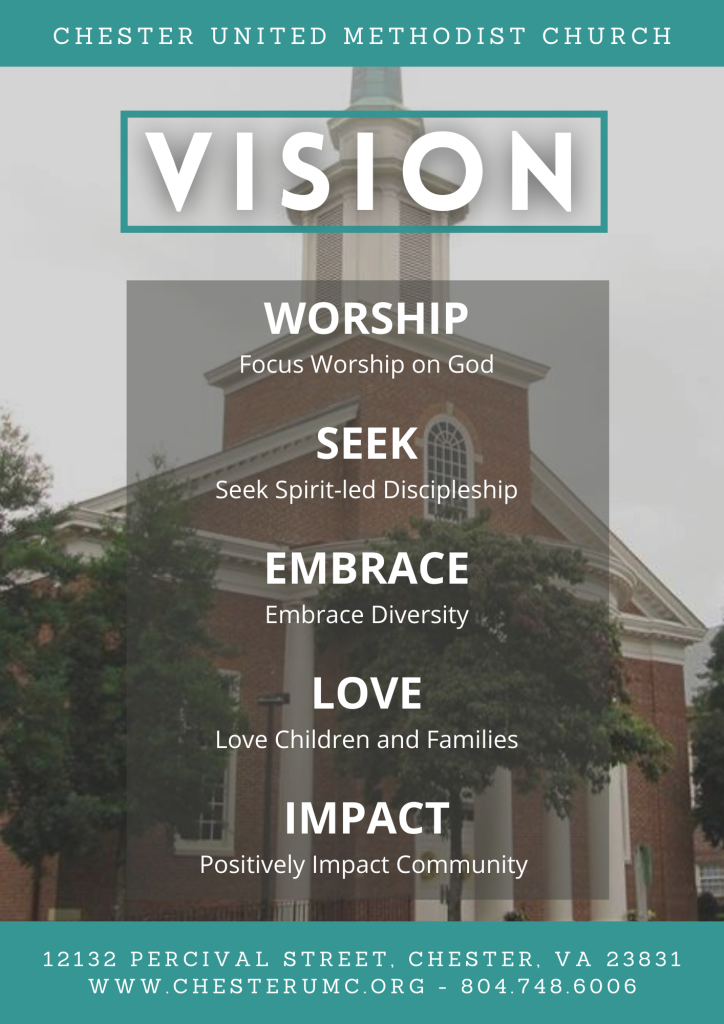
Chester United Methodist Church is a community in Christ who joins with other United Methodists in the mission to make disciples for Jesus Christ for the transformation of the world.
UNITED METHODIST BELIEFS
United Methodists share a common heritage with Christians of every age and nation – that is Jesus Christ is Savior and Lord.
John Wesley once described “Methodists” as people who love God and neighbor. He was simply repeating the words of Jesus when asked about the most important commandments.
Methodism did not arise in response to a specific doctrinal dispute rather our founder, John Wesley, wanted people to experience the grace of God. He called people to then grow in that grace and share that grace with others in acts of service. The hallmark of United Methodist is faith and love put into practice. We call it a “practical divinity.”
CUMC History
We started in what is now known as Ware Bottom. That church was burned in the Civil War. In 1873, another building was constructed on Winfree Street in Chester on property given by Mary Snead. In 1927, the church relocated again to Percival Street in Chester.
When the Sanctuary was outgrown, a new one was built on the same property in 1972. The 1927 Sanctuary was later converted into classrooms, but the historical stained-glass windows remain for the children to enjoy.
A large fellowship hall and education wing were added in 1990. The last major renovations were made in 2008.
At one time, we shared pastors with other Methodist congregations, even other denominations. The ecumenical spirit begun more than 100 years ago continues today in worship, fellowship, and outreach to the community.
UNITED METHODIST SOCIAL PRINCIPLES
The United Methodist Church has a long history of concern for social justice. Its members have often taken forthright positions on controversial issues involving Christian principles.
Early Methodists expressed their opposition to the slave trade to smuggling, and to the cruel treatment of prisoners.
These social principles are not considered to be church law – rather they are intended to be instructive and persuasive in the best of the prophetic spirit.